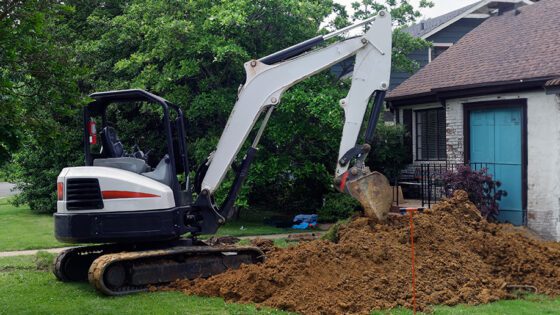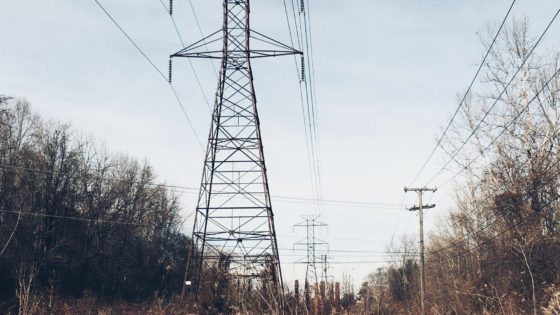Sometimes it may seem as though, if you are a business owner in North Carolina, the eminent domain laws are stacked against you. Many of our business clients would agree. That is why they came to us.
Two of us used to work as Assistant Attorneys General for the state representing the NCDOT. Why did we leave the NCDOT to go to work fighting for individual property owners? We saw too many property owners, business owners in particular, leaving good money on the bargaining table. And we wanted to do something about it.
Why does it seem business owners face more obstacles?
While it is true businesses can often face a tougher uphill climb with respect to getting paid for damages to their property, this is by no means done on purpose. Rather it is an unfortunate result in how North Carolina’s eminent domain laws have been cobbled together over many years – some dating back to the early part of the 20th century when we were still an agricultural state. Our state has grown so fast, particularly over the last couple of decades, some laws and statutes that probably should not be on the books, still remain. And some can cause harm to the property owner.
That is why we suggest business owners in particular seek experienced eminent domain legal guidance if their business property is in the state’s crosshairs.
When the state files condemnation papers against your property, here are some of the non-compensable issues business owners need to pay particular attention to. We have gotten exceptions for our clients in many cases.1 But you need to know someone who is very familiar with the laws and types of evidence needed to overcome many of these types of objections.
10 issues businesses are not likely to be compensated for
- Lost profits. The NCDOT pays for taking the land and buildings, but not for lost profits or future business. And the land is only valued according to the general market – it doesn’t take into account your business value.
- Business interruption damages. If roads are torn up or ongoing road construction is kicking up dust next to your car wash, the NCDOT does not have to compensate you for the business you may lose as a result.
- Circuity of travel. A change in the road’s travel pattern, particularly the new superstreet design gaining widespread use, can make it more difficult for customers to access your business or may prohibit them from doing business with you altogether. Adding medians can have the same effect.
- Medians. Building a median on the roadway near your business can have detrimental effects on future business, simply because of the lack of access or difficulty of access. Unfortunately our courts have ruled that damages arising from medians are non-compensable.
- Stating initial concerns. Before the state takes your land, the NCDOT may pay you a friendly visit to explain that they plan to build a median, for example, and why they need your property. They may ask you what concerns you have about their efforts. We urge clients not to respond to that question before they consult with us. Here’s why. Let’s say you state you are concerned about lost profits. You may not be aware that lost profits are non-compensable. But the NCDOT is aware of that. Very aware. If you subsequently raise other issues of concern to you, the NCDOT may discount these potentially legitimate concerns. Why? They may assume these issues are a weak proxy for your concerns about the median’s effects.
- Service road access. Most people understand that if you have direct access to a busy road your property is more valuable than indirect access to only a service road. But NC law states the indirect service road is just as good as direct access and that damage to your business or property is not compensable.
- Rule of access. We have had the NCDOT argue in business cases that they could close driveways as long as some of them are left open. They have claimed those closings are not compensable if they have determined they left you with adequate access. We have successfully disagreed in the past, but these can often be very tough cases*.
- Property and parking nonconformance. A nonconforming property is one in which the business doesn’t meet code, zoning, or community requirements and bylaws. A property can become nonconforming in a variety of ways with regard to an eminent domain taking: setbacks, planting strips, parking, signage. Sometimes a business owner finds that when they become nonconforming, they can’t get a loan against the property, or if they do they are charged a risk premium. Some institutional buyers like Walgreens or Walmart may not even consider buying nonconforming properties. Often when a property becomes nonconforming, the owner is forced to tear down the building in order to conform to the newer zoning ordinances, etc. And there is no guarantee they will be able to rebuild. Some properties are so nonconforming that if they tried to bring the property back into compliance, it would be too small to meet today’s codes and requirements. These issues are often overlooked by the state condemning authorities, even when they are the entity who will later enforce the zoning codes.
- Signage. As a business owner, especially a fast food or convenience store owner, you know you can’t simply pick up your sign and move it when the state needs that piece of your property. There are new permits to apply for, and these have been getting more restrictive each year. The signs must be smaller. They can’t be as high. They have to be certain dimensions. On some properties, the sign can’t even be relocated. The best you may be able to hope for is to relocate the sign onto your building, which defeats the whole purpose of a “roadside” sign that alerts customers to your business.
- Easements. Whether a temporary construction easement, a utility easement, or a slope or drainage easement, easements can be an ugly trap for the unwary business owner. A lot of business owners don’t realize that if the NCDOT takes a utility easement across their road, they have essentially bought the right to prevent anyone from parking there and using it as an internal driveway any time in the future. And when they do, they do not have to pay the owner any additional compensation.
Exceptions to non-compensable damages
Sometimes we have been able to help commercial and industrial property owners by negotiating plan changes to the NCDOT project, like additional or wider access points*. This has occasionally helped maintain business momentum. These types of negotiations usually require extremely thorough knowledge, not only of NC’s dusty cobwebs of eminent domain laws, but sometimes, the type of knowledge and information that can come from having worked on their side – and, quite frankly, knowing many of the people involved.
NC Eminent Domain Lawyers offer FREE case evaluations for your business taking
We’ve drawn on our combined 100+ years of experience to help increase the average offer for our clients by 197%1 since we’ve been in business.
If your NC business is facing land condemnation, contact us for a free case evaluation, or call us at 1-877-393-4990. We’ll let you know if we think we can help you.



